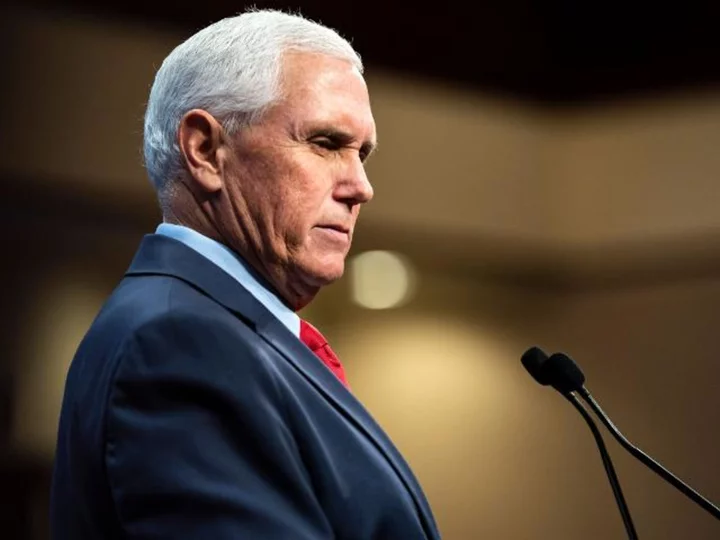The vice presidency can be a stepping stone to the presidency. Just ask Joe Biden, who found that serving as Barack Obama's No. 2 was the ticket to winning his party's nomination for president after two unsuccessful attempts.
Former Vice President Mike Pence, who took part in a CNN town hall Wednesday night after declaring his 2024 bid, is already finding a far rockier road to the White House than Biden. He's polling at just 4% in the national polls, while Biden entered the 2020 race as the polling front-runner.
This reflects history, which shows that while being vice president often correlates with success in future presidential ambitions, it is far from a guarantee.
Think about recent vice presidents who have tried to upgrade their positions. Biden became president, but Republican Dick Cheney never ran. Democrat Al Gore easily secured the party nod in 2000, but Republican Dan Quayle dropped his bid that same cycle long before the first votes were cast.
Half of the vice presidents of the past 30 years went on to earn their party's top spot.
But what happens if we go all the way back to the 18th century? On just 10 occasions has an incumbent or former vice president (including Richard Nixon twice) gone on to lead his party's presidential ticket -- out of 49 vice presidents in the nation's history (including Kamala Harris). That doesn't seem like a particularly high success rate, though we should remember that many vice presidents (like Cheney) don't run.
About 55% of vice presidents who ran for their party's nomination became the head of their party's ticket.
This, in my opinion, is a high batting average. Most years (like 2024) see many candidates run in the presidential primaries. The chance of any of those hopefuls randomly triumphing in the primaries is well less than 50%. Having the vice presidency on your resume increases your chances greatly, but there are plenty of Quayles out there.
This cycle, Pence looks to be much more on the Quayle path than the Biden one. Pence is about 50 points behind the man he served under (former President Donald Trump, the current front-runner for the GOP nomination), who is averaging 54% nationally.
Indeed, the biggest problem Pence has is that Trump wants his job back. A vice president running against his former White House boss in the primaries is quite rare. The last time it happened was 1940, when President Franklin Roosevelt crushed his vice president, John Nance Garner.
You could argue also that Quayle faced a similar challenge in the 2000 cycle, when George W. Bush, the son of Quayle's ticket mate, former President George H.W. Bush, secured the GOP nod.
Vice presidents are often able to ascend because of high name recognition and when primary voters like what their administration did in the White House. Democrats love Obama, so Biden benefitted from that love. But when you have someone who can claim to be even closer to the man in charge of that administration (whether the man himself or his son), then any vice presidential advantage disappears.
Of course, Pence's issues go even deeper. He's not overly popular among Republican primary voters.
A Quinnipiac University poll taken last month put his favorability rating among Republicans at 48% compared with 35% viewing him unfavorably. Trump's split, by contrast, was 86% favorable to 11% unfavorable.
Pence's comparatively low favorability rating stems in large part from his onetime boss's constant attacks on him.
Trump is upset because Pence believes -- correctly, according to almost all legal scholars -- that he could not overturn the 2020 election results on January 6, 2021, because his role as president of the Senate was largely ceremonial during the congressional count of electoral votes. And a clear majority of Republican voters believe the falsehood that Biden didn't legitimately win the election.
If Pence were to mount a comeback, it would probably start with what would seem to be a natural base: evangelical Christians. Pence has been outspoken about his "born-again" experience in 1978. His ties to the religious right is one of the reasons Trump put him on the ticket in the first place.
Trump, though, is dominating among White evangelicals in national surveys. According to a Fox News poll from late last month, Trump leads the pack with 59% with Pence well back in third place, at 6%.
The truth is that when examining the polling, Pence doesn't have much of a base. Something needs to change dramatically if he is going to win the nomination.

